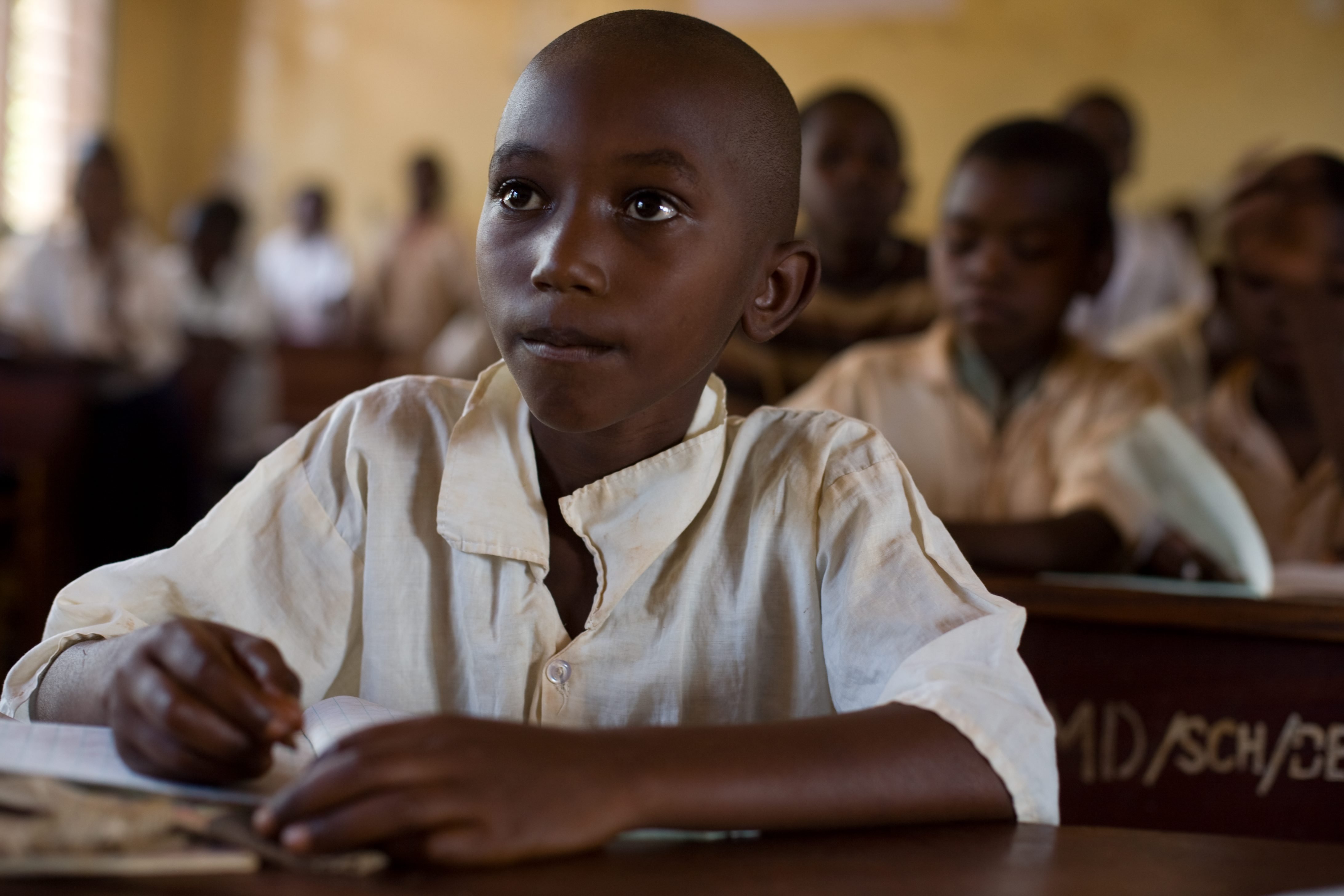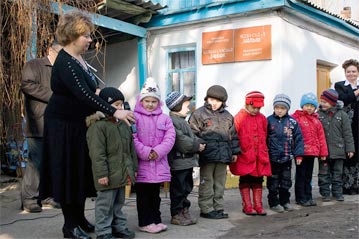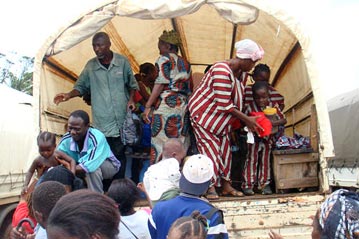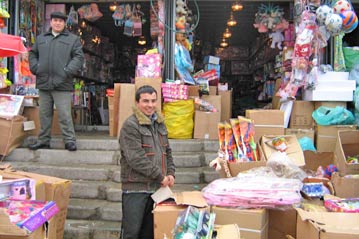Colombian makes fountains to integrate in Brazil's Amazon zone
Colombian makes fountains to integrate in Brazil's Amazon zone

MANAUS, Brazil, December 14 (UNHCR) - Fifty-six-year-old Pedro Villanueva* has found a new life and a new love for life on the banks of the mighty Amazon. "I am still fighting a daily battle, but this is an easy one," said the Colombian, who fled his country in 2006 after three years of internal displacement.
He has integrated remarkably well in Manaus, capital of northern Brazil's Amazonas state and the largest city on the Amazon River. He started a small business making garden fountains and has received a micro-credit loan of US$750 to expand this enterprise. He plans to supplement his income by becoming a taxi driver.
Villanueva has also enrolled his three children in school with the help of UNHCR and its local partners. "I always say to my kids: now you are Brazilian, even being born in Colombia. Here we have protection." His wife is still in Colombia.
Despite his optimism, Villanueva's past and flight from Colombia still haunts him. "This was like taking out part of my soul. But in Brazil I am finding quietness to carry on. There are lots of things to do," he said.
UNHCR, working with local civil society partners and the government, is trying to help thousands of other Colombian refugees living in urban and rural areas of Brazil's Amazon region, including indigenous people, realize this too and look for the opportunities that will ease their integration.
The refugee agency provides legal and financial assistance as well as Portuguese classes. And on Thursday this week, UNHCR signed memorandums of understanding (MOU) here with the state authorities and the municipality of Manaus aimed at strengthening protection for refugees, promoting their integration and facilitating the provision of public services to those forced to flee their homes because of conflict.
"The agreements will guarantee better assistance and access to public policies for refugees and asylum seekers, including documentation," UNHCR Representative in Brazil Luis Varese said after signing the MOUs. "Any intervention to protect and assist this population in the Amazon region is part of a humanitarian response to the Colombian conflict," he added.
For him, the partnership between UNHCR and governmental offices demonstrates, once more, that "Brazil is committed with the provision of international protection in Latin America".
Villanueva, who fled his native Casanare department near Colombia's border with Venezuela in 2004 and made his way hundreds of kilometres south to the Leticia-Tabatinga border crossing , is now considering the next step in his integration of his family.
He is considering asking for his wife to be allowed to come and join him and the three children in Manaus. That will help ease the emotional link with Colombia and prepare the way for a rosier future.
Today, there are some 3,500 recognized refugees from 69 different countries living in Brazil. The South American nation is also a resettlement country.
* Name changed for protection reasons
By Luiz Fernando Godinho in Manaus, Brazil








